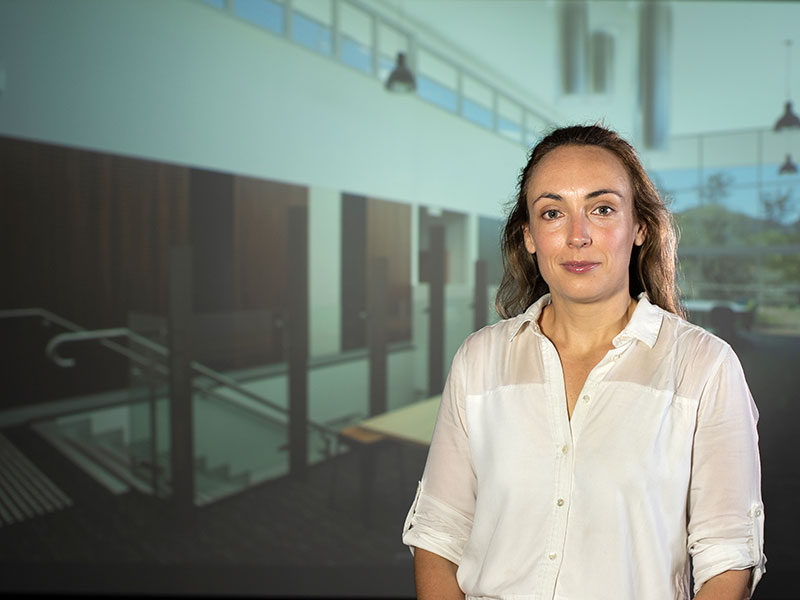Applying epidemiological methods to improve brain health and reduce health inequities
Dr Madeleine Hinwood
Dr Madeleine Hinwood applies advanced epidemiological and biostatistical methods to understand how exposures including medicines, stress, and socioeconomic status interact to shape long-term brain and heart health.

With a background in psychology and neurobiology, and subsequent specialist training in epidemiology and biostatistics, Madeleine’s work sits at the intersection of neuroscience, public health, and health policy. She uses causal inference, target trial emulation, and evidence synthesis to investigate the real-world impacts of medicines and social determinants on outcomes such as cognitive decline, dementia, and post-stroke recovery, with a focus on reducing inequities and improving outcomes across diverse populations.
Her program of research is motivated by a central question: how can we better prevent and treat cognitive sequelae of chronic diseases, particularly in disadvantaged populations?
Dr. Hinwood combines her preclinical neuroscience background with population health methods to address questions of clinical and policy importance. Her program of work includes research questions such as:
- How might prescribed drugs influence long-term neurological outcomes, such as dementia and cognition after stroke?
- Can we improve the way we design interventions to manage chronic stress using population-based surveillance studies?
- How do social determinants of health affect access to medicines, prescribing patterns, treatment adherence, and ultimately brain and cardiovascular outcomes?
Her methodological expertise includes causal inference, target trial emulation, handling competing risks, and comparative effectiveness research using both observational data and experimental studies.
Impact on health policy
Madeleine has contributed to national medicines policy through her role as an external academic evaluator for the Pharmaceutical Benefits Advisory Committee (PBAC). For over 8 years, her evaluations of pharmaceutical submissions helped inform subsidy decisions under the Pharmaceutical Benefits Scheme. This work shaped access to medicines for thousands of Australians and continues to influence her ongoing research on medicine use, policy, and equity.
Professional leadership and service
Madeleine is an elected member of the Council of the Australasian Epidemiological Association, serving as Communications and Membership Officer. In this role, she contributes to the governance of the Association, promotes epidemiological research, and fosters the professional development of emerging researchers across Australasia.
Looking to the future
Madeleine’s future research program will continue to build on the themes of brain health, via exposures such as stress, medicines, and socioeconomic inequities. She is working to harness large-scale linked administrative and clinical datasets to conduct equity-informed analyses that uncover how treatment pathways and social determinants interact to influence outcomes such as dementia and cardiovascular disease.
She is also part of the highly experienced Biostatistics team at the Hunter Medical Research Institute, providing advanced statistical support to researchers and health organisations. Methodologically, Madeleine is committed to advancing the use of causal inference, target trial emulation, and frameworks for handling intercurrent events in observational health data, with a particular emphasis on their application to high-mortality and chronic disease populations. She is equally passionate about training and mentoring the next generation of epidemiologists and biostatisticians, ensuring high-quality, reproducible research that bridges science and policy.
Through this integrated program — combining big data, stress research, medicines safety, and equity — Madeleine’s vision is to advance scientific understanding of brain health while informing clinical practice, medicines policy, and future prevention strategies.
The University of Newcastle acknowledges the traditional custodians of the lands within our footprint areas: Awabakal, Darkinjung, Biripai, Worimi, Wonnarua, and Eora Nations. We also pay respect to the wisdom of our Elders past and present.
